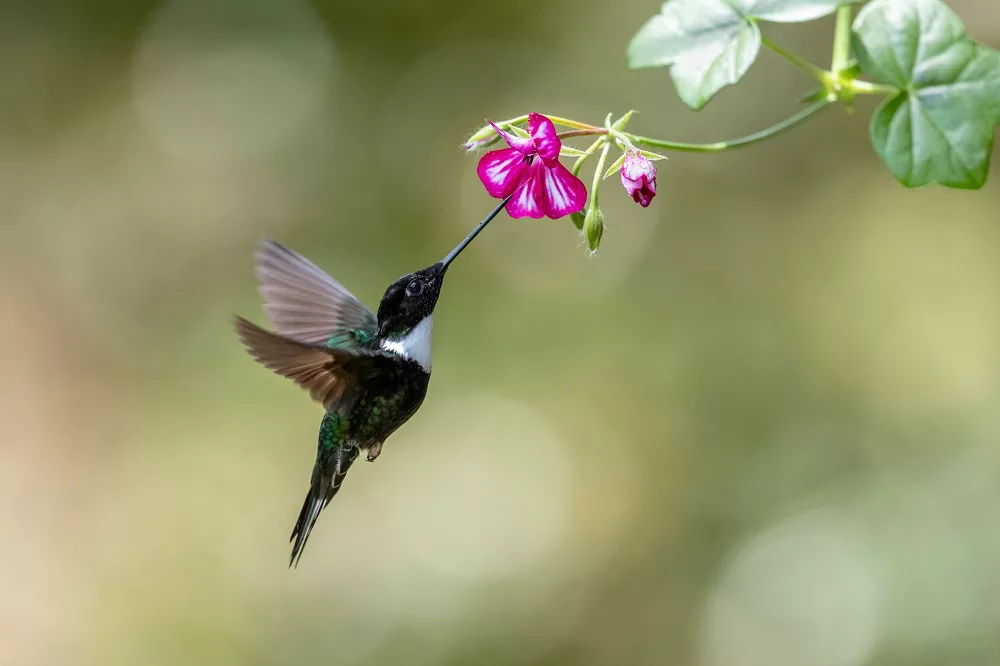Hummingbirds are a fascinating bird species that is known for their small size and rapid flapping wings, which allow them to hover in place for extended periods of time. They are also famous for their vibrant colors and their love for nectar. However, many people are not aware that these tiny birds also feed on insects. In this article, we will explore the diet of hummingbirds and answer the question, “do hummingbirds eat bugs?”
What Do Hummingbirds Eat?
Hummingbirds primarily feed on flower nectar. Nectar is a sweet liquid produced by flowers to attract pollinators like hummingbirds. These birds have long bills and tongues designed to reach deep into flowers and extract nectar. The nectar provides hummingbirds with the energy they need to fly and maintain their high metabolism. However, nectar alone is not enough to meet all of their nutritional needs.
In addition to nectar, hummingbirds also consume insects, spiders, and other arthropods. These tiny creatures provide hummingbirds with protein, vitamins, and minerals that they cannot get from nectar alone. Hummingbirds typically catch insects while flying or hovering. They use their long tongues to capture prey in the air, similar to how they take nectar from flowers.
What Types of Insects Do Hummingbirds Eat?
Hummingbirds consume a wide variety of insects, including ants, beetles, gnats, mosquitoes, and fruit flies. They also feed on spiders, spider eggs, and other arthropods. Hummingbirds are particularly fond of small insects that are easy to catch and high in protein. They will often catch dozens of insects in a single feeding session.
How do hummingbirds catch bugs?
Hummingbirds are incredibly agile and can hover in mid-air, fly backward, and even upside down. This agility makes them excellent at catching insects. They typically catch insects by hovering in front of them and then snatching them out of the air with their beaks. They can also pluck insects off of leaves or branches while flying by.
Why Do Hummingbirds Eat Bugs?
Hummingbirds eat bugs as part of their natural diet. Insects provide a valuable source of protein, vitamins, and minerals that are essential for their health and well-being. Without insects, hummingbirds would not be able to survive on nectar alone. Insects are also a more dependable food source than nectar, which can vary in availability depending on the season and weather conditions.
Hummingbirds may also eat insects for other reasons. For example, some species of hummingbirds use spider silk to build their nests. These birds will actively seek out spiders and capture them to use their silk in nest construction. Additionally, hummingbirds have been observed eating insects that are attracted to flowers or that are caught in spider webs. Eating these insects prevents them from consuming nectar that has been contaminated by the insects.
How much of a hummingbird’s diet is made up of bugs?
The amount of insects that hummingbirds eat varies depending on the species and the time of year. During the breeding season, when female hummingbirds need extra protein, they may consume up to half of their diet in insects. At other times of the year, insects may make up a smaller portion of their diet, but they are still an important source of nutrition.
Conclusion
In conclusion, hummingbirds do eat bugs as part of their natural diet. Insects provide valuable nutrients that are essential for their health and well-being. Hummingbirds typically consume small insects that are easy to catch and high in protein. While nectar is their primary food source, insects provide a more dependable food source that is available year-round. Understanding the diet of hummingbirds is essential for anyone interested in attracting these fascinating birds to their yard. By providing a variety of food sources, including nectar and insects, you can create an environment that is attractive to hummingbirds and supports their health and survival.


 Facebook
Facebook  Instagram
Instagram  Youtube
Youtube 